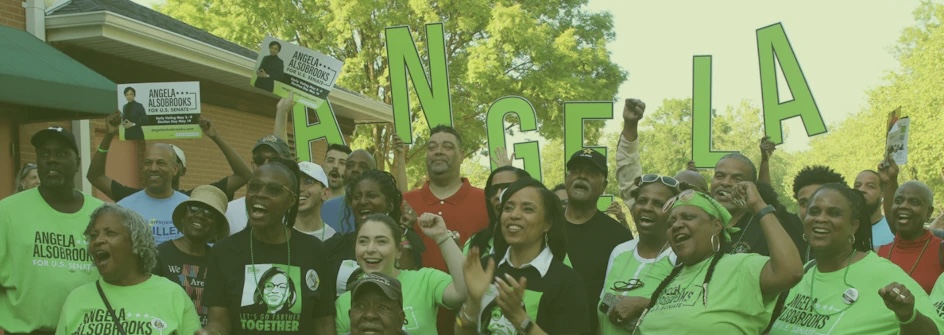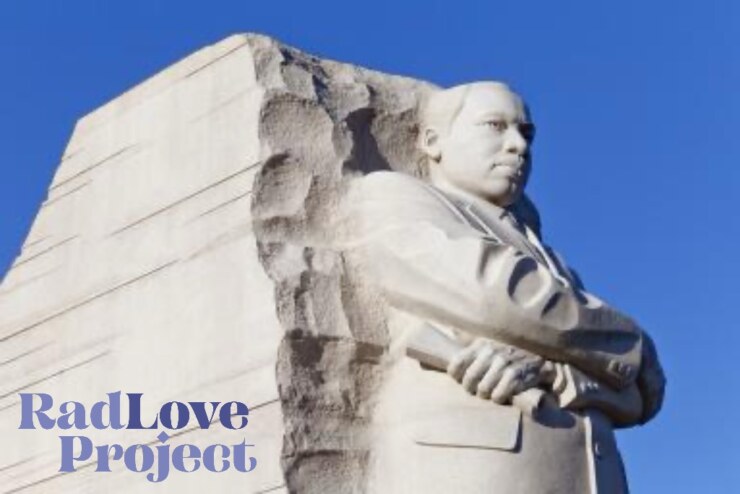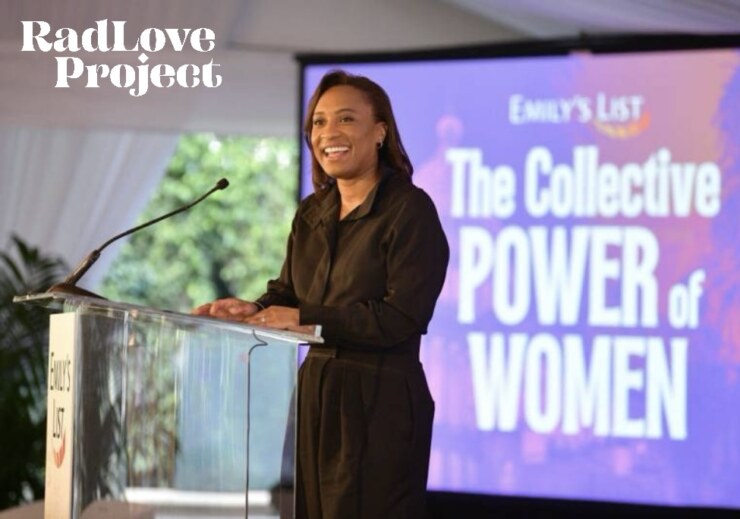In recent years, the political landscape has shifted towards greater diversity and representation with Black women being elected to positions of power. Yet despite this advancement, there still exists a pervasive narrative that Black women are not “electable”, a notion rooted in gendered and racist microaggressions and stereotypes (see below for specific examples). Angela Alsobrook’s recent awesome win over David Trone in Maryland should put some of these outdated notions to rest and make those of us who are ready for change smile – change is here.

The election of Angela Alsobrooks as Marylands’ Democratic nominee for the United States Senate serves as a powerful testament to the electability of Black women. Alsobrooks’ victory not only shattered glass ceilings but also challenged the entrenched biases and discriminatory beliefs that have long hindered the political aspirations of Black women.
The argument that Black women are not electable is often steeped in harmful stereotypes and preconceived notions. It is thrown around as a way to not “be against” a symbol of change but to say that for “electability” reasons we must stick with the status quo. This past Democratic nomination race in Maryland was no exception, but the voters did not go for it. These microaggressions (sometimes very intentionally promoted) manifest in a variety of forms and often come out in politics as doubts about Black women’s leadership abilities, concerns about likeability, and skepticism about Black candidates’ appeal to a broad electorate (aka a false belief that white people are unable to vote for a woman or person of color). These unfounded criticisms not only undermine the achievements of Black women in particular but also perpetuate systemic inequalities, underestimate the capacities of our human family, and maintain the status quo in the political arena.
Here are some specific tangible examples illustrated in Angela Alsobrooks’ campaign by her competitor David Trone
At one of his campaign events Trone told supporters, “I’m the only guy that can beat Larry Hogan, I tell you that right now.”
Gender Bias: By referring to himself as “the only guy” who can beat Larry Hogan, Trone’s choice of language displays a clear (and frankly likely intentional) gender bias. The use of the word “guy” in this context diminishes the qualifications and capabilities of Alsobrooks (who is a woman) suggesting that only a man can compete against Hogan and that women should lose to men in political elections (men are stronger, that is the natural order of things, etc.).
While campaigning, Trone said his wealth “guarantees” that he’s not tied to special interests.
Class Bias and White Privilege: In addition to not being true (Trone is a co-owner of Total Wines and has invested in elections to get certain political outcomes which is literally the definition of special interests), Trone’s assertion that wealth and not character “guarantees” breaking ties to corruption implies moral superiority based on money. Money is linked to race literally (white people are more likely to be wealthy) and money is linked to race psychologically (when we think of those who don’t have money we recall images of Black people). Trone was leveraging his white privilege in this context to beef himself up and put Angela Alsobrooks and by extension and through his use of language all Black people (even wealthy ones) down. It is also worth noting that through his use of language, he also put all non-wealthy people (even white ones) down. Neither money nor race defines someone’s character.
Trone said he offers experience noting “this is not a job for someone on training wheels” in referring to Alsobrooks even though she also has governmental experience.
Racially-Charged Paternalistic Experience Disparagement: Trone’s comment about experience stating that “this is not a job for someone on training wheels” in reference to Alsobrooks was open disparagement of her qualifications and governmental experience. It fits with a larger societal trend where we oftentimes witness the dominant culture overlook the contributions of women and people of color. This type of language so incorrectly applied to someone with experience feels 1) gaslighting since Alsobrooks actually has government experience 2) feels similar to the expression “little girls should be seen and not heard” and is extremely paternalistic implying only those who have been in congress before should be in congress and 3) feels racially charged as if to say Alsobrooks isn’t capable/able to play in the “whites only” sandbox that is the U.S. Senate (75% of the senate is made up of white people who make up only 59% of the population)

It is important to note that microaggressions happen in the context of society at large and are not only the fault on one individual but of a larger culture that perpetuates harm. These statements by David Trone may contain microaggressions that could reinforce stereotypes, biases, or inequalities based on race and gender. Campaigns and candidate messages are highly orchestrated and such things would not be said if there was not already social buy in and social capital invested in patriarchy and white supremacy. It is important to critically analyze and address such statements to promote fair and respectful political discourse and ensure equitable opportunities for all candidates. It is essential that we challenge and confront the racist and gendered microaggressions that seek to diminish the “electability” of Black women.
Lastly, just as a shameless plug and because I am a supporter let me just say we should put our donor dollars and our votes where our mouths are if we care about addressing oppression!
Alsobrooks’ successful primary election demonstrates that Black women are electable and can be seen as capable leaders. Now on to victory in November!
Join the RadLove movement and help us redefine what is possible.










